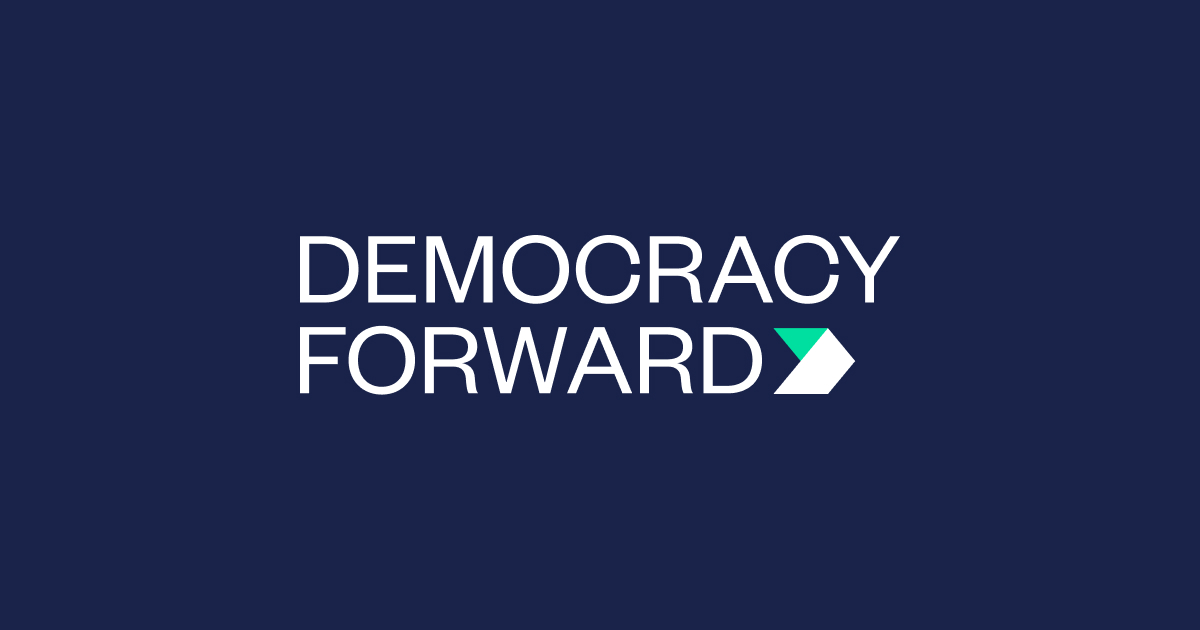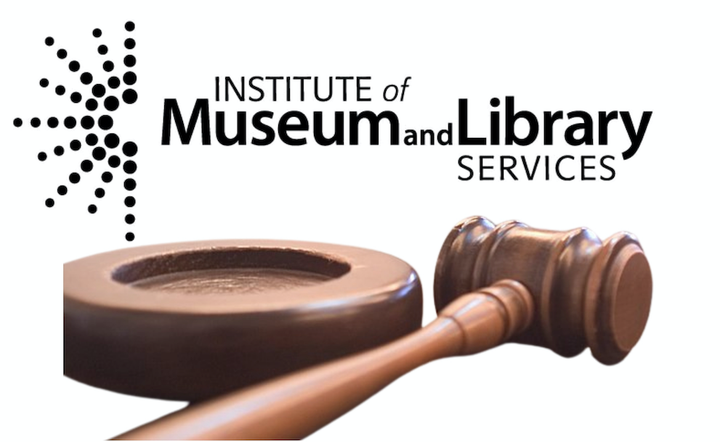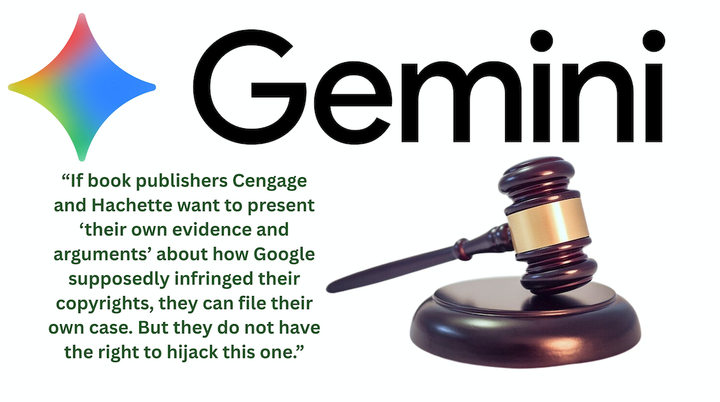Appeals Court Blocks the Trump Administration's Firing of Top Copyright Officer
In a 2-1 decision, a federal appeals court ruled that judge Timothy Kelly erred in denying Shira Perlmutter’s bid for a preliminary injunction, and enjoined Trump administration officials from interfering with her service as Register of Copyrights, pending a further order of the court.

In a major—if perhaps temporary—victory, a federal appeals court on September 10 ruled that Shira Perlmutter can continue in her role as U.S. Register of Copyrights while she challenges a Trump administration effort to fire her.
In a 2-1 decision, the U.S. Court of Appeals for Washington D.C. held that judge Timothy Kelly, a Trump appointee, erred in denying Perlmutter’s bid for a preliminary injunction, and in a brief per curiam order enjoined Trump administration officials from “interfering with [Perlmutter’s] service as Register of Copyrights and Director of the U.S. Copyright Office pending further order of the court.”
The decision means that Perlmutter is free to get back to work while she sues to keep her job, and comes two days after Perlmutter filed her motion for summary judgment on September 8.
The case is set to be fully briefed by October 14, with oral argument currently set for November 4 in judge Kelly's Washington D.C. courtroom.
"On May 10, 2025, President Trump purported to fire Ms. Perlmutter—one day after she issued a report on the use of copyrighted materials in generative artificial intelligence, providing an analysis of copyright law with which the President has publicly indicated disagreement," Perlmutter's motion states. "This Court should not permit the President’s lawless effort to prevent Ms. Perlmutter from advising Congress on today’s critical copyright issues."
Genuinely Extraordinary
The appeals court ruling comes after Kelly, on May 28, denied Perlmutter’s bid for a temporary restraining order, and, on July 30, denied her bid for a preliminary injunction, both of which sought to keep Perlmutter in her job until her lawsuit challenging the Trump administration's May 9 attempt to remove her was decided on the merits.
In his rulings, Kelly had insisted that "the temporary loss" of a "statutory right to function" did not meet the "genuinely extraordinary" standard required for granting injunctive relief. On August 20, Kelly also denied a last ditch emergency motion filed by Perlmutter.
But in a lengthy concurrence, written by judge Florence Pan and joined by judge J. Michelle Childs, both Biden appointees, the majority eviscerated Kelly’s decision.
“The district court…relied on precedents which hold that the President’s desire to remove an official who exercises executive power generally outweighs the official’s interest in performing her duties,” the majority noted, “But the district court abused its discretion by failing to consider ‘unusual actions relating to the discharge itself’ and a ‘genuinely extraordinary situation’—factors that inform the irreparable harm analysis and distinguish this case from other removal cases.”
Among the extraordinary circumstances of Perlmutter’s firing: that the President lacks the legal authority to dismiss her, and that Perlmutter was allegedly dismissed after releasing a Copyright Office report that appeared to conflict with the administration’s priorities.
“Perlmutter can likely establish that she was unlawfully removed from her post as Register of Copyrights, and that her removal was motivated by the President’s disapproval of her work in service of Congress—work that was related to legislative, not executive, functions. Moreover, she was purportedly replaced by an Executive Branch official. That alleged violation of the separation of powers is irreparably harmful to both Perlmutter and to our system of government,” reads Pan’s concurrence. “In a system of checked and balanced power, the Executive has no authority to punish a Legislative Branch official for the advice that she provides to Congress.”
In addition to finding that Kelly erred by not considering and weighting the other preliminary injunction factors—Perlmutter’s likelihood of success on the merits, the balance of equities, and the public interest—all of which, the majority found, favored issuing an injunction pending appeal, the majority also found that Kelly got his irreparable harm analysis wrong.
The district court erred by “mechanically” applying previous Supreme Court precedents and failing to recognize the “extraordinary situation” presented by Perlmutter’s case, the concurrence explains. And because “no amount of back pay” could compensate Perlmutter or Congress for Perlmutter’s “interim inability to support Congress’s consideration of copyright law and policy during a critical time,” the concurrence states, her firing "presents a ‘genuinely extraordinary situation,’ such that [Perlmutter] has made the requisite showing of irreparable harm.”
And in a good sign for Perlmutter’s chances of winning her case on the merits, the majority also agreed that the President lacks the authority to fire the Register of Copyrights, or to appoint an Acting Librarian of Congress who could legally exercise authority over the Copyright Office.
“The Librarian of Congress—not the President—is authorized by statute to appoint the Register. And because the governing statute is silent regarding the question of removal, the Librarian—not the President—has the power to remove Perlmutter,” the concurrence states.
Furthermore, the majority held, the appointment of Todd Blanche as the Acting Librarian of Congress is also likely unlawful, meaning that Blanche also lacks the authority to either fire Perlmutter, or to appoint an Acting Register.
In fact, the court suggests that, despite the administration’s claims to have fired Perlmutter, Perlmutter hasn’t been fired so much as obstructed from doing her job.
“Notwithstanding Perlmutter’s purported removal, and the purported appointment of Blanche as Acting Librarian, it appears that Perlmutter is still serving in her role as Register,” the court noted.
The majority also dispatched with the administration’s argument that the Federal Vacancies Reform Act (FVRA), a statute that allows the President to appoint “another Senate-confirmed official as the acting principal officer of an Executive agency,” subject to certain limitations, gives the president the authority to appoint an acting librarian who could legally remove the register. "The plain language of the statute indicates that the Library of Congress is not an ‘Executive agency’ for purposes of the FVRA,” the concurrence points out, calling the FVRA an “unavailing workaround” for the administration.
“In sum, all of the preliminary-injunction factors weigh in favor of granting an injunction pending appeal,” the concurrence states. “Perlmutter has shown a likelihood of success on the merits of her claim that the President’s attempt to remove her from her post was unlawful because she may be discharged only by a Senate-confirmed Librarian of Congress. She also has made the requisite showing of irreparable harm based on the President’s alleged violation of the separation of powers, which deprives the Legislative Branch and Perlmutter of the opportunity for Perlmutter to provide valuable advice to Congress during a critical time. And Perlmutter has shown that the balance of equities and the public interest weigh in her favor because she primarily serves Congress and likely does not wield substantial executive power, which greatly diminish the President’s interest in her removal. For the foregoing reasons, we grant Perlmutter’s requested injunction pending appeal.”
Judge Justin Walker, a Trump appointee, offered a brief dissent, suggesting that the Register of Copyrights exercises “executive” power, and that the greater threat comes from the courts allowing “a removed officer” to continue exercising executive power than from a “wrongfully removed officer” being kept from doing their job.
The action now shifts back to Kelly’s courtroom, where the judge is now considering summary judgment.
Still, even if Perlmutter is successful on the merits, it may not matter for long. Trump can effectively end this dispute by nominating a new, permanent Librarian of Congress, who, after senate confirmation, would legally be able to remove Perlmutter and install a new register of copyrights.

But in a statement, Perlmutter's attorneys at Democracy Forward hailed the decision as a broader win.
“This is a significant victory for the rule of law, the separation of powers, and the independence of Congress. The President does not have the authority to remove the Register of Copyrights or to install his own officials to run the nation’s library," said Brian Netter, Legal Director at Democracy Forward. "We are proud to represent Shira Perlmutter in defending the integrity of our democratic institutions, and we will continue this fight as it proceeds."



